Sister of man who died awaiting trial in a Toronto jail speaks out on 'alarming' spike in inmate deaths
Melissa Chatzimanolakis’ brother Anthony died while awaiting trial at an Ontario jail late last month, marking one of the latest amongst an increasing number of inmate deaths in recent years – but Melissa says she’s refusing to let him become “a sad statistic.”
“We did everything together,” Melissa told CTV News Toronto in an interview over the phone Thursday. “He was a happy, loving, caring person.”
Anthony Chatzimanolakis, 30, died at Toronto South Detention Centre in Etobicoke on March 25, the Ministry of the Solicitor General confirmed Thursday. He was awaiting trial at the facility, and had a bail hearing scheduled for April 14 – "just two weeks from when he died," Melissa said.
Paramedics were called to the jail that day after staff found an inmate unresponsive and in medical distress in his cell, the ministry said, adding it was unable to provide further details as “a number of investigations are underway.”
The family has said that initial investigations and autopsies performed on Anthony suggest he may have died of a drug overdose, but concrete answers, including a coroner’s report and toxicology results, could still be up to nine months away.
Growing up, Melissa said her and Anthony were inseparable.
“We were only 10 months apart,” Melissa said. “My brother and I have been side-by-side our whole lives.” That changed last September when Anthony was arrested after being accused of vehicle theft, carrying an unlicensed, loaded firearm, and harassment. The charges had not been proven in court, and he had not been convicted.
“Although my brother made some bad decisions, he had a good heart,” Melissa said. “He would literally take the shirt off of his back to give it to somebody in need, he’d give you the last $5 in his pocket for you to go eat.”
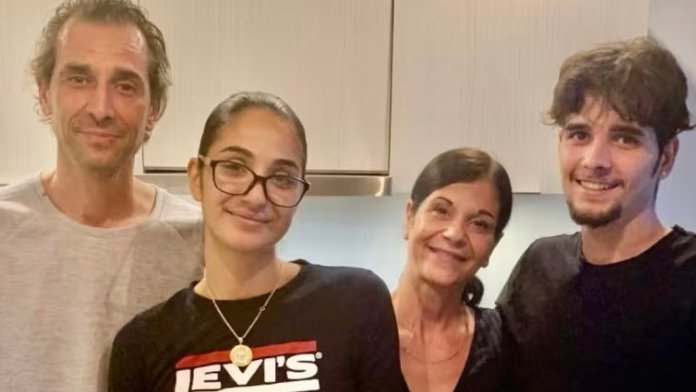 The Chatzimanolakis family. (Handout by Melissa Chatzimanolakis)
The Chatzimanolakis family. (Handout by Melissa Chatzimanolakis)
Since Anthony was jailed, Melissa said she’d been visiting him at least once a week. Although she physically travelled to the jail for the visitations, her time with Anthony was still required to be conducted virtually.
He often spoke of the pain he was in, suffering complications from a 2019 motorcycle crash, Melissa said.
Information to be presented at Anthony’s upcoming bail hearing suggests that an incision in his torso had recently begun to open, and that his intestinal tract was “bulging out” in two places.
The Chatzimanolakis' lawyer, Carmelo Truscello, told CTV News Toronto that Toronto South Detention Centre had scheduled a corrective procedure for Anthony on Nov. 3, 2022, but according to the family, that procedure was cancelled and had yet to be rescheduled.
“He felt like he was being ignored.”
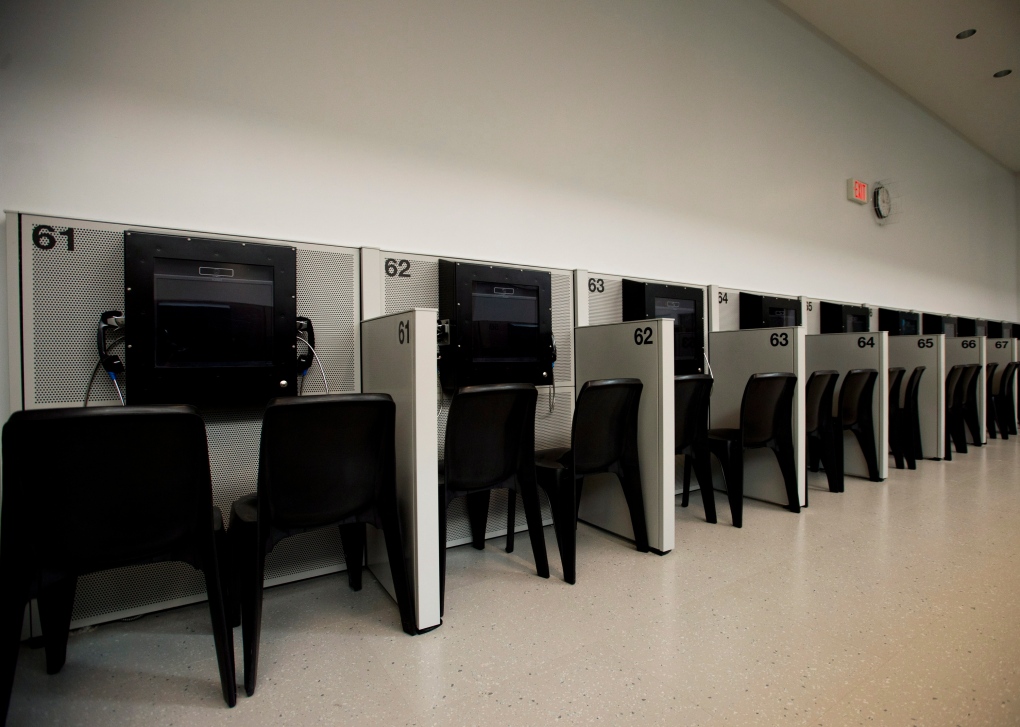 Visitor video phone booths are shown during a media tour of the Toronto South Detention Centre in Toronto on Thursday, Oct. 3, 2013. (Nathan Denette / THE CANADIAN PRESS)
Visitor video phone booths are shown during a media tour of the Toronto South Detention Centre in Toronto on Thursday, Oct. 3, 2013. (Nathan Denette / THE CANADIAN PRESS)
Now, Melissa says she’s been left to wonder what exactly happened to her brother.
“We have no answers,” Melissa said. “We're just sitting here with a million things running through our heads and we are unable to properly grieve without knowing what exactly happened to him.”
Melissa said she’s sharing Anthony’s story because “unfortunately, [it] is not unique.”
“This happens a lot – more than people even know – and it's not spoken about,” she said.
Truscello underlined that Canadian law recognizes that “prison officials owe a duty of care to prison inmates.”
"As a result, they must act with reasonable care to protect individuals held in custody from foreseeable harm,” the lawyer said.
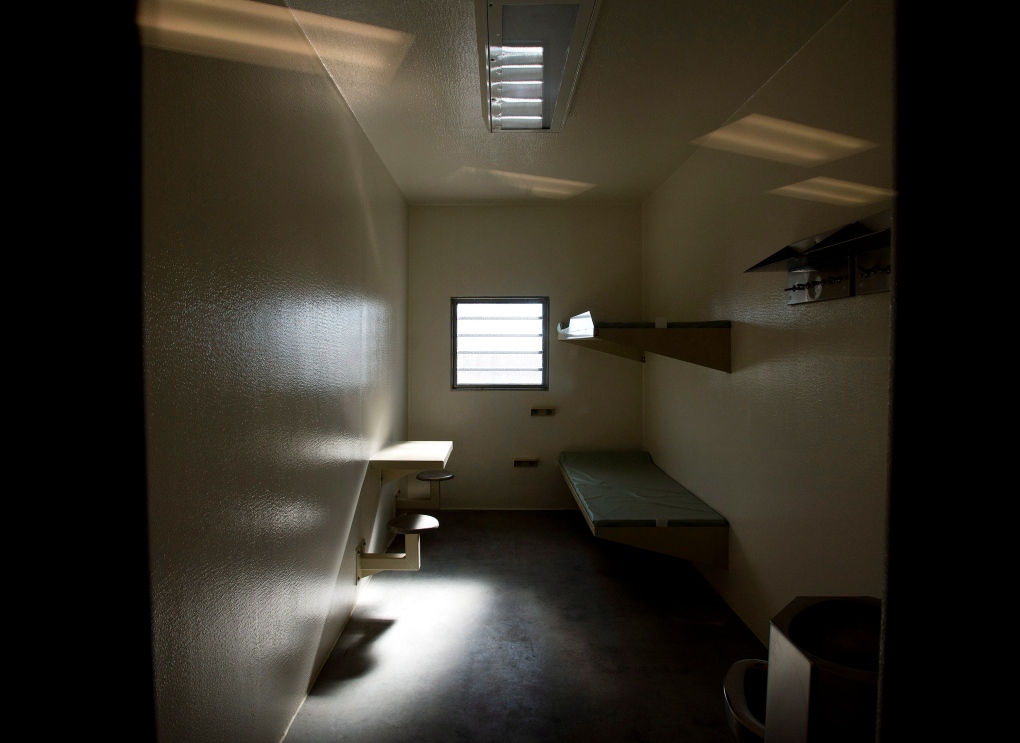 A view of a general population inmate cell is shown during a media tour of the Toronto South Detention Centre in Toronto on Thursday, Oct. 3, 2013. (Nathan Denette / THE CANADIAN PRESS)
A view of a general population inmate cell is shown during a media tour of the Toronto South Detention Centre in Toronto on Thursday, Oct. 3, 2013. (Nathan Denette / THE CANADIAN PRESS)
A report released in January by the coroner’s office said deaths in Ontario jails have “risen dramatically” in recent years.
From 2014 to 2021, 186 people died in custody, with 19 deaths in 2014, 25 in 2019 and 46 in 2021.
By far, the most common cause of death is accidental overdose, according to the data. The report found that illicit drugs are currently making their way into correctional facilities at an “alarming pace,” brought in by people being brought into custody, visitors, lawyers, drones and staff, it said.
“When tragedies like this occur it speaks to a larger systematic issue that is rooted in poor staffing — among other things — which dilute the institutions ability to provide the level of care required to prevent these types of foreseeable harms,” Truscello said, adding that more needs to be done to ensure institutions do not fail citizens in pre-trial custody, presumed to be innocent.
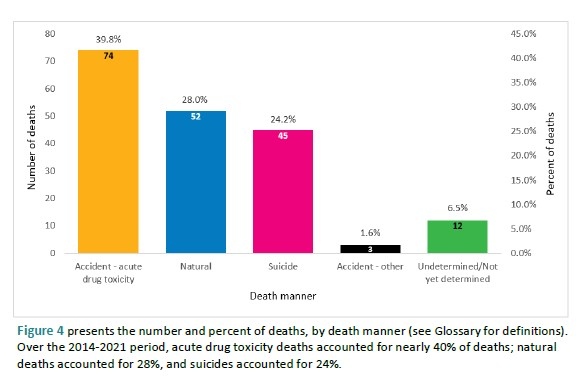 Source: An Obligation to Prevent - Report from the Ontario Chief Coroner’s Expert Panel on Deaths in Custody
Source: An Obligation to Prevent - Report from the Ontario Chief Coroner’s Expert Panel on Deaths in Custody
The report also specifically identified the number of individuals incarcerated on remand – a term for inmates awaiting trial, sentencing or other proceedings – as a contributing factor to the rising number of inmate deaths.
Anthony’s death comes at a time when the Ford government is pushing for “swift action” on bail reform meant to keep “violent offenders off the streets.” The push has been fuelled in part by a number of recent high-profile violent crimes committed by offenders released on undertakings.
“It’s not an exaggeration to say that people are now dying because of the failures of our justice system,” Premier Doug Ford said at Queen’s Park Monday. Two days later, the province tabled a motion calling on the federal government to take immediate action on “meaningful” bail reform.
Almost 70 per cent of people jailed in Ontario are on remand. That number is “ever-increasing,” the province says, and experts have cautioned against measures that continue to balloon it.
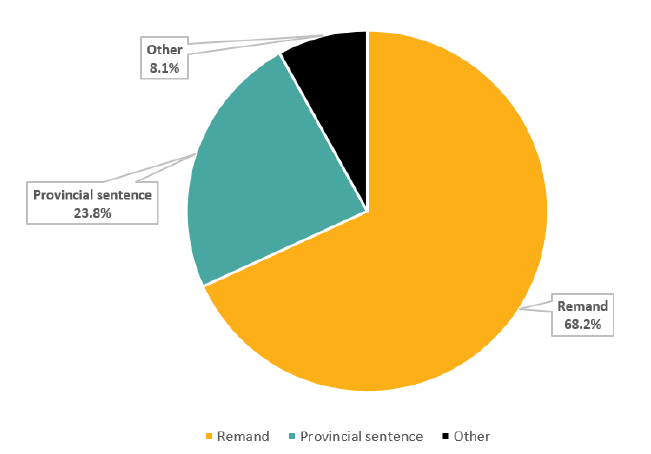 Sixty-eight per cent of incarcerated individuals in Ontario are on remand. (Coroner's Office)
Sixty-eight per cent of incarcerated individuals in Ontario are on remand. (Coroner's Office)
To die in a Canadian correctional facility is “unlawful and unjust,” Melissa said, but far from unheard of.
“Many men and women die in correctional facilities in Ontario – however, they don’t have families to mourn them and to question their deaths – they just simply disappear and become a sad statistic,” she said.
“Anthony is not that,” she said, and to prove it, she said she’ll continue sharing her brother’s story and seeking justice.
“I really feel, from the bottom of my heart, that my brother’s could have been prevented if things had just been done differently.”
CTVNews.ca Top Stories

opinion Tom Mulcair: Prime Minister Justin Trudeau's train wreck of a final act
In his latest column for CTVNews.ca, former NDP leader and political analyst Tom Mulcair puts a spotlight on the 'spectacular failure' of Prime Minister Justin Trudeau's final act on the political stage.
B.C. mayor gets calls from across Canada about 'crazy' plan to recruit doctors
A British Columbia community's "out-of-the-box" plan to ease its family doctor shortage by hiring physicians as city employees is sparking interest from across Canada, says Colwood Mayor Doug Kobayashi.
'There’s no support': Domestic abuse survivor shares difficulties leaving her relationship
An Edmonton woman who tried to flee an abusive relationship ended up back where she started in part due to a lack of shelter space.
Baseball Hall of Famer Rickey Henderson dead at 65, reports say
Rickey Henderson, a Baseball Hall of Famer and Major League Baseball’s all-time stolen bases leader, is dead at 65, according to multiple reports.
Arizona third-grader saves choking friend
An Arizona third-grader is being recognized by his local fire department after saving a friend from choking.
Germans mourn the 5 killed and 200 injured in the apparent attack on a Christmas market
Germans on Saturday mourned the victims of an apparent attack in which authorities say a doctor drove into a busy outdoor Christmas market, killing five people, injuring 200 others and shaking the public’s sense of security at what would otherwise be a time of joy.
Blake Lively accuses 'It Ends With Us' director Justin Baldoni of harassment and smear campaign
Blake Lively has accused her 'It Ends With Us' director and co-star Justin Baldoni of sexual harassment on the set of the movie and a subsequent effort to “destroy' her reputation in a legal complaint.
Oysters distributed in B.C., Alberta, Ontario recalled for norovirus contamination
The Canadian Food Inspection Agency has issued a recall due to possible norovirus contamination of certain oysters distributed in British Columbia, Alberta and Ontario.
New rules clarify when travellers are compensated for flight disruptions
The federal government is proposing new rules surrounding airlines' obligations to travellers whose flights are disrupted, even when delays or cancellations are caused by an "exceptional circumstance" outside of carriers' control.


































